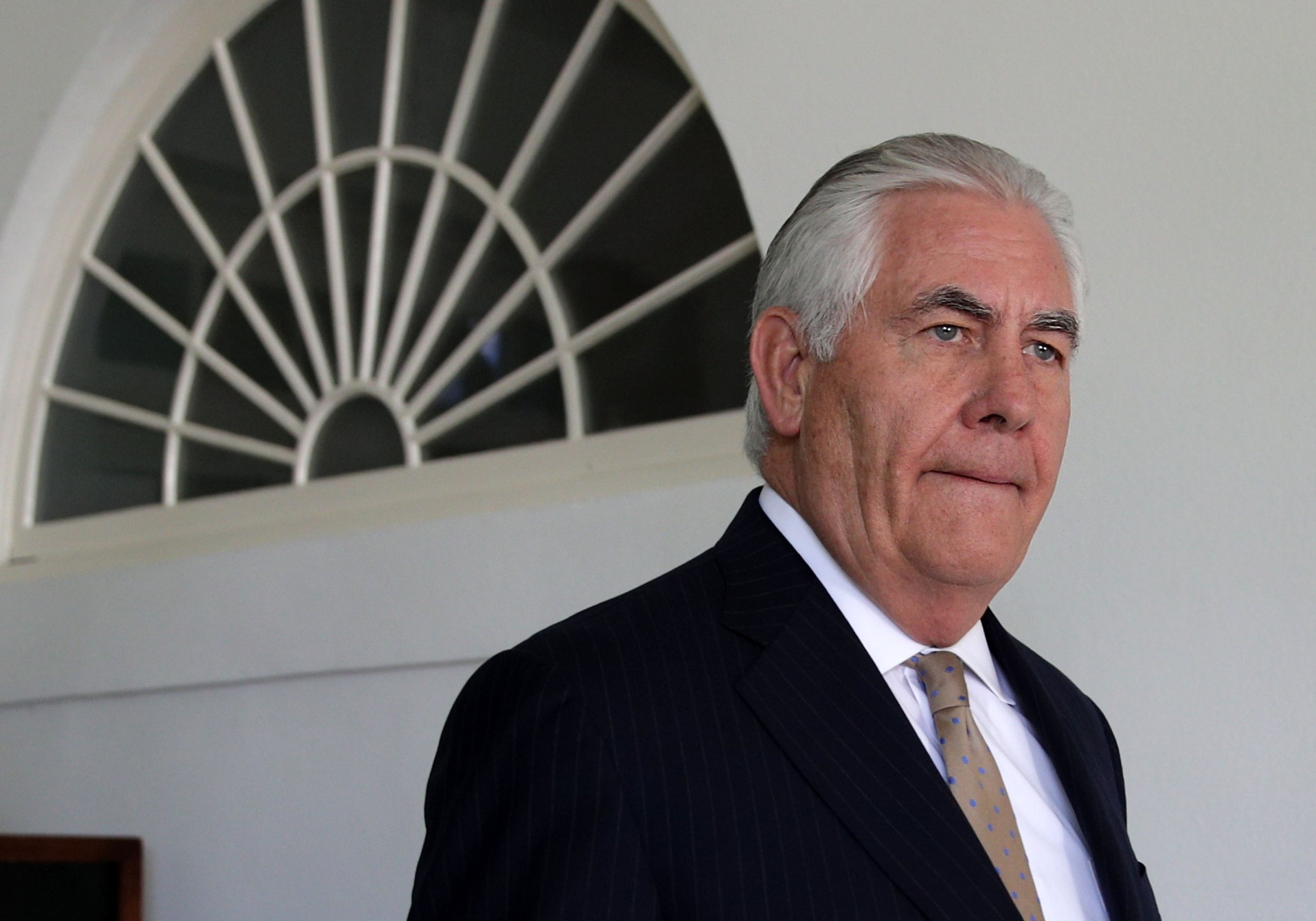
The United States is increasingly concerned that a rift between Qatar and other Arab states is at an impasse and could drag on for a long time or intensify, the U.S. State Department said on Thursday.
Underscoring U.S. concerns about a crisis involving key allies in the Middle East, the department said Secretary of State Rex Tillerson plans to visit Kuwait, which is mediating in the dispute, on Monday.
In the latest top-level U.S. contact with officials of the countries involved in the dispute, Defense Secretary Jim Mattis discussed the importance of easing tensions in a phone call with Qatari Minister of State for Defense Affairs Khalid al-Attiyah on Thursday.
Read More: Middle East Rifts Are Widening Amid a Global Power Vacuum
Saudi Arabia, the United Arab Emirates, Egypt, and Bahrain broke diplomatic relations with Qatar last month and launched a drive to boycott the gas-producing state, which they accuse of supporting terrorism and allying with regional foe Iran.
Qatar denies the charges and has accused the four countries of “clear aggression.”
“We remain very concerned about that ongoing situation between Qatar and GCC (Gulf Cooperation Council) countries,” State Department spokeswoman Heather Nauert told a briefing.
“We’ve become increasingly concerned that that dispute is at an impasse at this point. We believe that this could potentially drag on for weeks. It could drag on for months. It could possibly even intensify,” she said.
Mattis discussed the state of relations among Gulf Arab states and “the importance of de-escalating tensions” in his call with Attiyah, the Pentagon said in a statement.
Read More: The Startling Rise of the Brash Young Man Who Would Be King of Saudi Arabia
The two officials “affirmed the strategic security partnership” of their countries and Mattis emphasized the importance of Qatar’s contributions to the U.S.-led coalition fighting Islamic State, it added.
Qatar hosts the largest U.S. Air Force base in the region. Saudi Arabia has been a close U.S. ally for decades, and U.S. President Donald Trump sealed a $110 billion arms deal with the kingdom during a visit in May.
The rift opened days after Trump met Arab leaders in Riyadh in May and called for unity against Iran and hardline Islamist militant groups.
Trump discussed the crisis in phone calls with leaders of Saudi Arabia and Qatar, as well as the crown prince of Abu Dhabi, on Sunday, reiterating the importance of “stopping terrorist financing and discrediting extremist ideology,” according to the White House.
More Must-Reads from TIME
- Cybersecurity Experts Are Sounding the Alarm on DOGE
- Meet the 2025 Women of the Year
- The Harsh Truth About Disability Inclusion
- Why Do More Young Adults Have Cancer?
- Colman Domingo Leads With Radical Love
- How to Get Better at Doing Things Alone
- Michelle Zauner Stares Down the Darkness
Contact us at letters@time.com